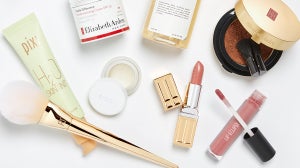
After this year, we're all hoping to pick up healthier habits and ensure smaller dark circles. But do you really know how to get more shut-eye? The science of a good nights sleep goes far beyond a little lavender spray. Helping you have more restful nights for productive days, we’ve done our research on how to sleep better, here are our findings.
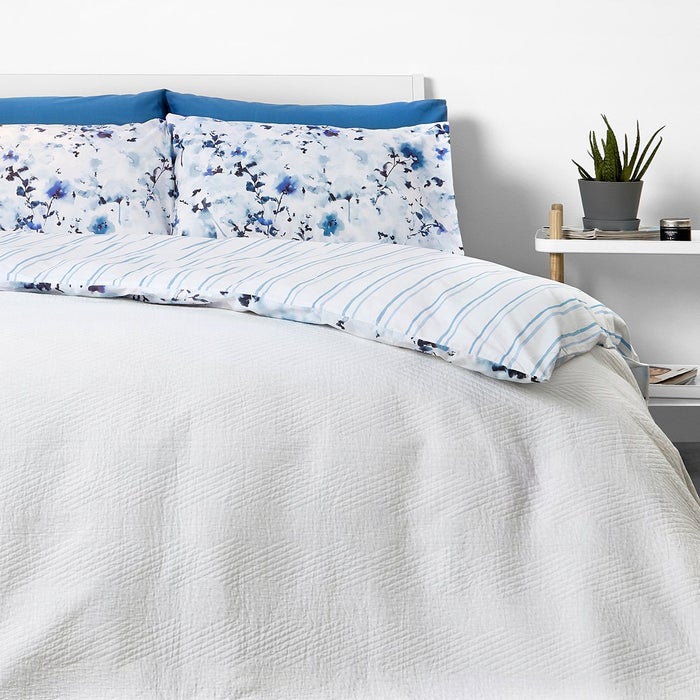
#1 Your bed
First things first, is your bed actually stopping you from getting a peaceful sleep? Worn out pillows, duvets and mattresses can all have a big effect on our sleep posture, preventing us from having a truly deep sleep and making us wake up uncomfortable and restless. You might be able to improve your sleep by simply refreshing your bed.
Duvets
For the best nights sleep, you need a drop in temperature. While it’s tempting to turn your room into a warm cosy cocoon, this will actually make it harder to fall asleep. Sleep expert James Wilson says that instead, you ideally want to feel a slight drop in temperature as you enter your room.
The same rule applies for your duvet, so that super thick duvet might actually be weighing you down. A thick duvet may be making you too warm during the night, so try going down a tog.
The higher the tog, the warmer the duvet. As a general rule-
3-5 tog is light, ideal for summer or people who generally run warmer.
9 or 10 tog is the perfect duvet for couples, being a happy medium to help moderate and suit two different body temperatures.
13.5 tog is for the depths of winter, but avoid putting it on your bed too early, instead try to use a lower tog with a blanket you can remove on milder nights.
The filling of your duvet is largely down to personal preference. Feather and down is generally denser and helps absorb body moisture as you sleep, while Microfibre offers the same cosiness without the bulk or real feathers. Microfibre duvets can also be washed easily and regularly.
Pillows
You should be looking to update your pillows every 18 months to make sure they’re being supportive enough.
A general test to check if your pillows are still puffy enough is the fold test. Fold your pillows in half then release them, they should spring back into shape. If they don’t, time to swap them out.
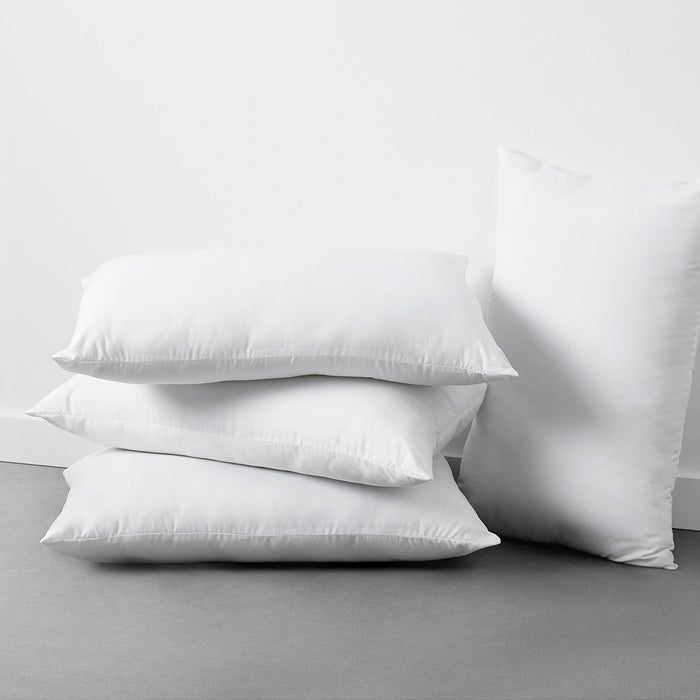
Mattresses
They say you should change your mattress every 8 years, however, we know how much of an investment a mattress is. There are definitely things you can do to help your mattress last longer than 8 years, such as using a mattress protector, flipping it regularly and looking into mattress cleaners.
Obviously, your mattress plays a big role in your sleep. You spent over 2500 hours a year in bed, so it needs to be comfy. The firmness of your mattress should depend on how you sleep;
Side sleepers need a softer mattress to protect their hips.
Front or back sleepers need a firmer mattress to support their spine.
A great way to boost your comfort and hopefully improve your sleep is to get a mattress topper, giving you a whole new feel without breaking the bank.
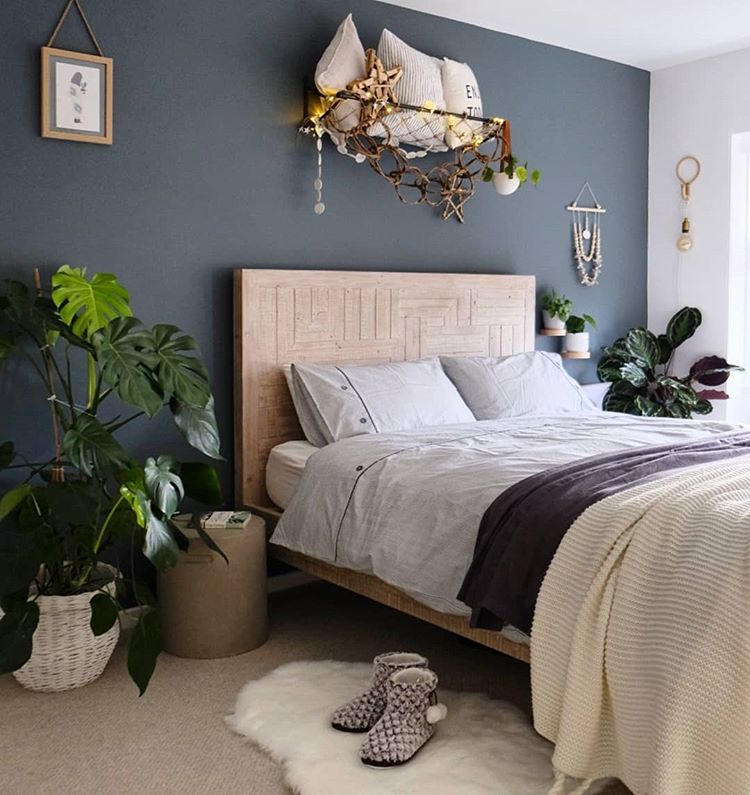
#2 Your environment
Don’t underestimate the effect your bedroom has on your sleep. Everything from lighting to interiors can prevent you from the most restful night possible. You can improve your sleep simply by creating a better sleep space, here are some tips.
Listen to white noise
When you fall asleep you can likely hear cars outside and have a little bit of light. So when you wake up in the stark silence and dark, your body immediately becomes more alert to try and figure out where it is. Listening to a continuous sound all night will ease this as your body will wake up to a familiar sound, making you more likely to drift back to sleep. Something like rain sounds or white noise will keep you in a sleepy haze even if you wake up in the middle of the night. Apps like Headspace offer 'sleepcasts' with different sounds or turn to Spotify's sleep genre to find white noise tracks that are hours long.
No more duvet hogging
For Scandi couples, sharing a duvet isn’t the norm. Rather than spending the night trying to fight for your side back, plenty of couples around Europe opt for two single duvets. This means you’re free to have whatever tog you like and move around freely without disrupting your partner. If you feel like your loved one is getting in the way of your sleep, this may be an option for you.
Dedicate the space to sleep
If you struggle to switch off, try simply spending less time in your bedroom. Avoid sitting on your bed during the day time and move your evening activities into your living room, letting you keep your bedroom dedicated to sleep. This means that over time your bedroom will become associated with nothing but sleep, creating a subconscious link in your brain between simply entering your bedroom and going to sleep, helping you wind down. If you can’t commit to this, set yourself a rule like no TV in bed or no loud noises beyond 9 pm.
Finding it difficult to put your phone down? You can use the screen time settings on your iPhone to set a cut off point, locking all your apps after a certain time. Otherwise, apps like Forest incentivise leaving your phone alone, growing virtual trees as you sleep peacefully.
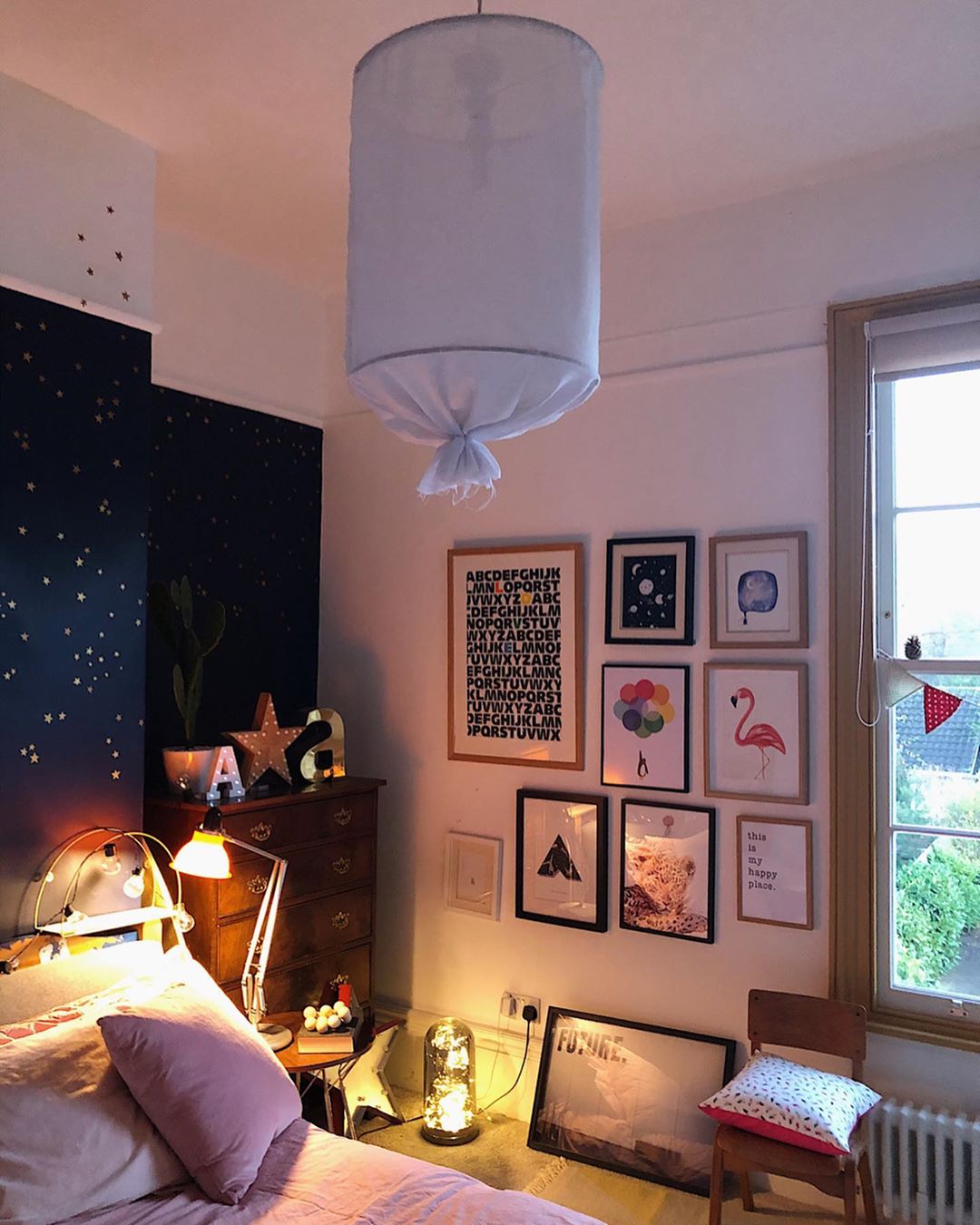
#3 Your behaviour
The do's and don’ts of nighttime habits can feel overwhelming, but the main thing is just finding a routine that leaves you feeling relaxed and comfortable. If you’re not sure where to start, here are some simple tips.
Do yoga before bed
Exercise before bed is a good idea as it will help wear you out a little bit. However, you want to avoid raising your heart rate too high before trying to sleep, so something like yoga is perfect. This will give you a nice stretch and get you tired without rushing your body with adrenaline. Follow this up with a warm shower to regulate your body temperature before crawling into bed.
Be selective with your TV
If you can’t resist a little bit of Netflix before bed, be selective with what you’re watching. Avoid watching a series you’re really engrossed in as you want to be able to switch it off and go to sleep whenever you feel tired. Instead, opt for a comedy or trashy reality show that isn’t going to be stressful or too thought-provoking as stress can block the production of melatonin, the hormone that helps you sleep and regulates your sleep/wake cycle.
Block out the blue light
If you're going to use your screen, get yourself a blue light blocker. The blue light of your phone and laptop trick your brain into thinking its daytime as it parades as natural light. So if you're going to be watching something at night, using a blue light blocking app or screen protector will help your body react more naturally to its tiredness. For iPhone and Macs, in the display and brightness menu, you'll find a night shift option, where you can programme your phone to automatically shift your display colours when the sun goes down. For a Windows PC, search for the night light settings to select the hours you want to be blue-light-free. If your devices don't have these settings, you can buy screen protectors that filter out the harsh light.
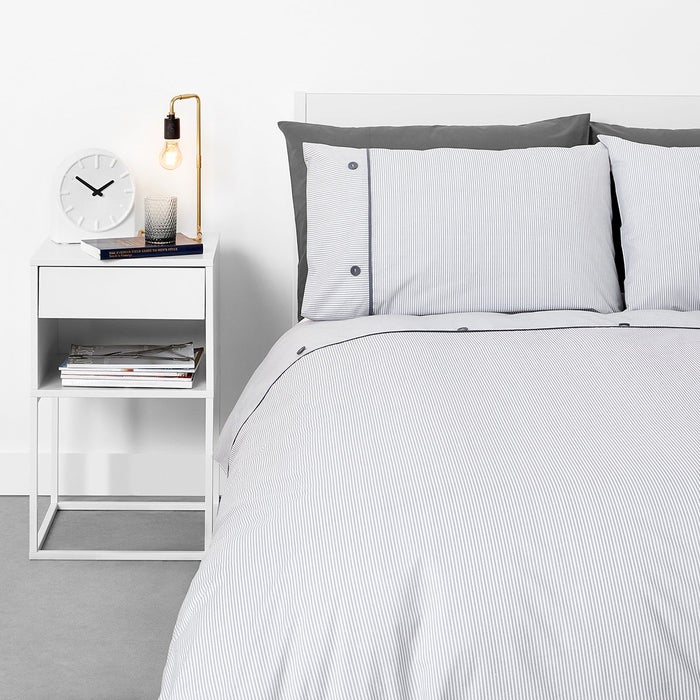
Skip the lie-in
Your weekend duvet day is ruining your sleep during the week. You should think of sleeping and waking up as two sides of a cycle, one affects the other so they need to work in harmony. You’ll be able to get to sleep better if you wake up as a consistent time, which will, in turn, make you tired at a consistent time. If you do this in the week and then sleep till midday on a Saturday, you’re throwing off your cycle. An extra hour or so won’t do any harm, but avoid sleeping all day if you don’t want to be awake at night.
Ditch the nightcap
It might seem like that extra glass of wine helps you sleep, but you’re being deceived. While it seems easier to fall asleep after a drink, the alcohol is actually tricking your body into thinking you’re getting a deep sleep while preventing you from doing so. Alcohol reduces REM sleep, which is the stage of deep sleep in which we have dreams and our body restores itself. This is why the next morning you feel drowsy and unable to concentrate because your body missed out on the time to restart.
SHOP IN HOMEWARE ON THE HUT>>>
Written by Lucy Harbron


